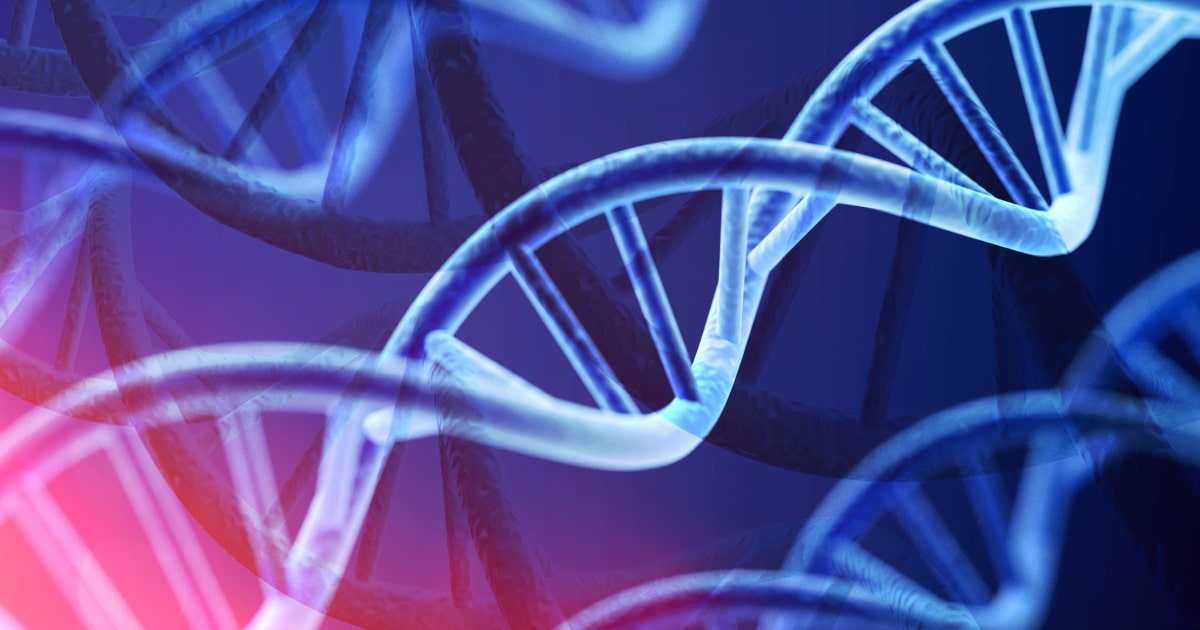
Expert Reviewed By: Dr. Brandon Colby MD
Autism spectrum disorders (ASD) are a group of neurodevelopmental conditions characterized by social interaction difficulties, communication challenges, and repetitive behaviors. While the exact causes of ASD are still being investigated, research has shown that genetics play a significant role in the development of these disorders. In recent years, scientists have made significant strides in understanding the genetic basis of rare autism-related disorders, paving the way for improved diagnosis and potential treatment options.
Understanding the Genetic Basis of Rare Autism-Related Disorders
Several studies have highlighted the importance of genetic factors in the development of rare autism-related disorders. One such study, "Common genetic variants contribute to risk of rare severe neurodevelopmental disorders", shows that 7.7% of variance in risk for severe neurodevelopmental disorders is attributable to inherited common genetic variation, affecting patients both with and without a monogenic diagnosis.
Another study, "CACNA1D-Related Channelopathies: From Hypertension to Autism", focuses on the CACNA1D gene and its association with neurodevelopmental disorders. The review summarizes disease-associated CACNA1D variants and discusses potential treatment options for individuals with these genetic mutations.
Furthermore, a deep-learning convolutional neural network called DeepSAV has been developed to differentiate disease-causing and benign single-amino acid variations (SAVs) based on protein sequence, structural, and functional properties. This tool, described in the study "Mutation severity spectrum of rare alleles in the human genome is predictive of disease type", can help researchers study gene-disease associations and better understand the genetic basis of rare autism-related disorders.
Diagnosing Rare Autism-Related Disorders through Genetic Testing
As our understanding of the genetic factors contributing to rare autism-related disorders grows, so does the potential for improved diagnosis through genetic testing. Identifying specific genetic mutations associated with these disorders can help healthcare professionals provide a more accurate diagnosis, leading to better-targeted interventions and support for affected individuals and their families.
The Role of Structural Variants in Autism Spectrum Disorders
One area of genetic research that has shown promise in diagnosing rare autism-related disorders is the study of structural variants. The article "The role of rare structural variants in the genetics of autism spectrum disorders" highlights the importance of spontaneous structural mutations in the etiology of ASD. It suggests that ASD is caused by a large number of individually rare mutations, which can be detected through genetic testing.
Using Genetic Testing to Inform Treatment and Support
Genetic testing for rare autism-related disorders can not only aid in diagnosis but also inform treatment and support options. By identifying specific genetic mutations, healthcare professionals can better understand the underlying mechanisms of the disorder and develop targeted interventions that address the individual's unique needs.
Genetic Testing for Family Planning and Prenatal Screening
For families with a history of rare autism-related disorders, genetic testing can be a valuable tool in family planning and prenatal screening. By identifying potential genetic risks, couples can make informed decisions about their reproductive options and receive appropriate prenatal care and monitoring.
Looking Forward: The Future of Genetic Testing for Rare Autism-Related Disorders
As research continues to uncover the complex genetic factors contributing to rare autism-related disorders, genetic testing will play an increasingly important role in diagnosis, treatment, and family planning. By better understanding the genetic basis of these disorders, healthcare professionals can provide more targeted support and interventions, improving the quality of life for affected individuals and their families.
About The Expert Reviewer
Dr. Brandon Colby MD is a US physician specializing in the personalized prevention of disease through the use of genomic technologies. He’s an expert in genetic testing, genetic analysis, and precision medicine. Dr. Colby is also the Founder of and the author of Outsmart Your Genes.
Dr. Colby holds an MD from the Mount Sinai School of Medicine, an MBA from Stanford University’s Graduate School of Business, and a degree in Genetics with Honors from the University of Michigan. He is an Affiliate Specialist of the American College of Medical Genetics and Genomics (ACMG), an Associate of the American College of Preventive Medicine (ACPM), and a member of the National Society of Genetic Counselors (NSGC)